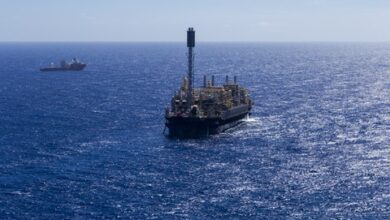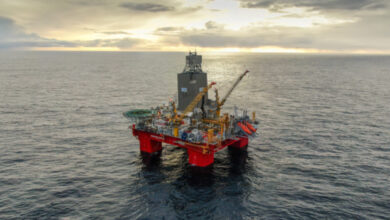IADC to Coast Guard: Macondo report too focused on mitigation
Recommendations made by the US Coast Guard’s Macondo joint investigation team are overly focused on mitigation rather than prevention, IADC told the agency in a letter on 31 May. “In IADC’s view, the primary goal should be to concentrate all reasonably practicable measures on the prevention of the loss of well control, thus preventing the reoccurrence of such an incident,” the association stated.
IADC also pointed out that the recommendations seemingly focus on the operation of mobile offshore drilling units (MODUs) as vessels rather than on the broader underlying issues associated with working conditions on the US Outer Continental Shelf (OCS).
Moreover, a clear regulatory structure is needed, with a coordinated view of the structure shared by the Coast Guard and the Bureau of Ocean Energy Management, Regulation, Enforcement (BOEMRE). “IADC continues to be concerned by seemingly duplicative regulatory requirements imposed by the Coast Guard and BOEMRE, particularly where the agencies appear to have divergent views regarding the placement of regulatory responsibility,” the letter stated.
The Coast Guard’s Macondo report made numerous recommendations for amendments that should be made to the MODU Code related to explosion protection, fire protection, evacuation/search and rescue, flooding and sinking, and safety systems. IADC stated its willingness to work with the Coast Guard and other interested parties to develop amendments but challenged many of the recommended considerations for amendments.
For example, one recommendation related to explosion protection was to amend the MODU Code to provide more detailed guidance for the design and arrangement of fixed automatic gas detection and alarm systems. IADC disagreed with this recommendation. For MODUs, most fire and gas detection systems are under a type approval by the unit’s classification society. There are no regulatory requirements established by the IMO or the Coast Guard. “At this time, IADC is not convinced that creation of a regulatory requirement for type or ‘system’ approval is warranted,” the letter said.
Related to fire protection, one recommendation was to amend the MODU Code to require that fire pump systems be self-contained, including dedicated fuel supplies for at least 18 hours of operation. IADC did not support this recommendation because the underlying issue being addressed is not restricted solely to MODUs but would be common to any vessel or facility.
“This recommendation could not be assessed without referring to the Conclusions portion of the Report so as to ascertain that the intent was to mandate the installation of a diesel-driven fire pump,” IADC stated.
The Coast Guard also recommended that the Lifesaving Appliances (LSA) Code and its testing recommendations be amended to ensure the adequacy of lifesaving appliance standards.
IADC noted that the underlying issue being addressed is not restricted solely to MODUs and, in this instance, should be first addressed in Coast Guard regulations. IADC also stated that the issue has been addressed by the petroleum regulatory authorities of several countries, including Australia, Canada, Norway and the UK. The lack of internationally recognized standards associated with the policies adopted by these countries is problematic.
IADC has previously recommended to the Coast Guard and to the IMO that the standards for lifesaving equipment be revised to reflect a range of assumed occupant mass; this recommendation was not supported by the IMO. IADC continues to believe that it is appropriate to do so.
Another Coast Guard recommendation asked that current response plan requirements for vessels engaging in oil and gas drilling activities on the OCS be revised; operators’ response plans should specifically address responses to vessel fires in addition to well fires.
IADC said it was unaware of any Coast Guard policy on response plan requirements for vessels engaging in oil and gas drilling activities on the OCS. Under current regulations, the responsibility for review and approval of lessee/operator response plans rests with the BOEMRE, IADC pointed out.
Related to safety systems, it was also recommended that a risk-based port state control targeting program be developed to provide additional oversight for foreign-flagged MODUs working on the OCS based on a predetermined evaluation criteria, including the identity of the flag state.
IADC supports the establishment of such a program but sees no reason for not including US-flag vessels. The purpose should be to focus the Coast Guard’s resources on high-risk vessels and facilities engaged on the OCS, irrespective of their flag.
The Coast Guard also recommended working with the BOEMRE to evaluate the benefits of shifting to a safety case approach “similar to that used in the North Sea, a method in which there is a more holistic approach to safety.”
IADC has previously advocated the use of a safety case approach and emphasized the need for a holistic approach. The association has already highlighted that the major hazards and associated controls associated with MODU operations rarely fall within the jurisdiction of a single regulatory agency and that overlapping requirements of regulatory agencies may complicate the effective application of the controls.
There is no single safety case approach, and actual requirements for the safety case vary considerably. The IADC HSE Case Guidelines for Mobile Offshore Drilling Units guides the development of a safety case acceptable to multiple regulatory authorities. IADC has completed a gap analysis comparing BOEMRE’s SEMS Rule against the IADC guidelines and has concluded that the SEMS Rule contains all the essential elements of a safety case.
The SEMS Rule is in place. Congress is considering and likely to pass legislation that would mandate that BOEMRE promulgate regulations requiring a safety case be submitted along with each new application for a permit to drill on the OCS.
IADC told the Coast Guard that it sees no benefit in further evaluation of the safety case approach by the agency at this time. Rather, IADC urged them to work with the BOEMRE to ensure that the SEMS Rule holistically addresses the hazards that pose risks to health, safety and environment so that regulatory conflicts between the two agencies are minimized.
To see the full IADC report to the Coast Guard, click here.




